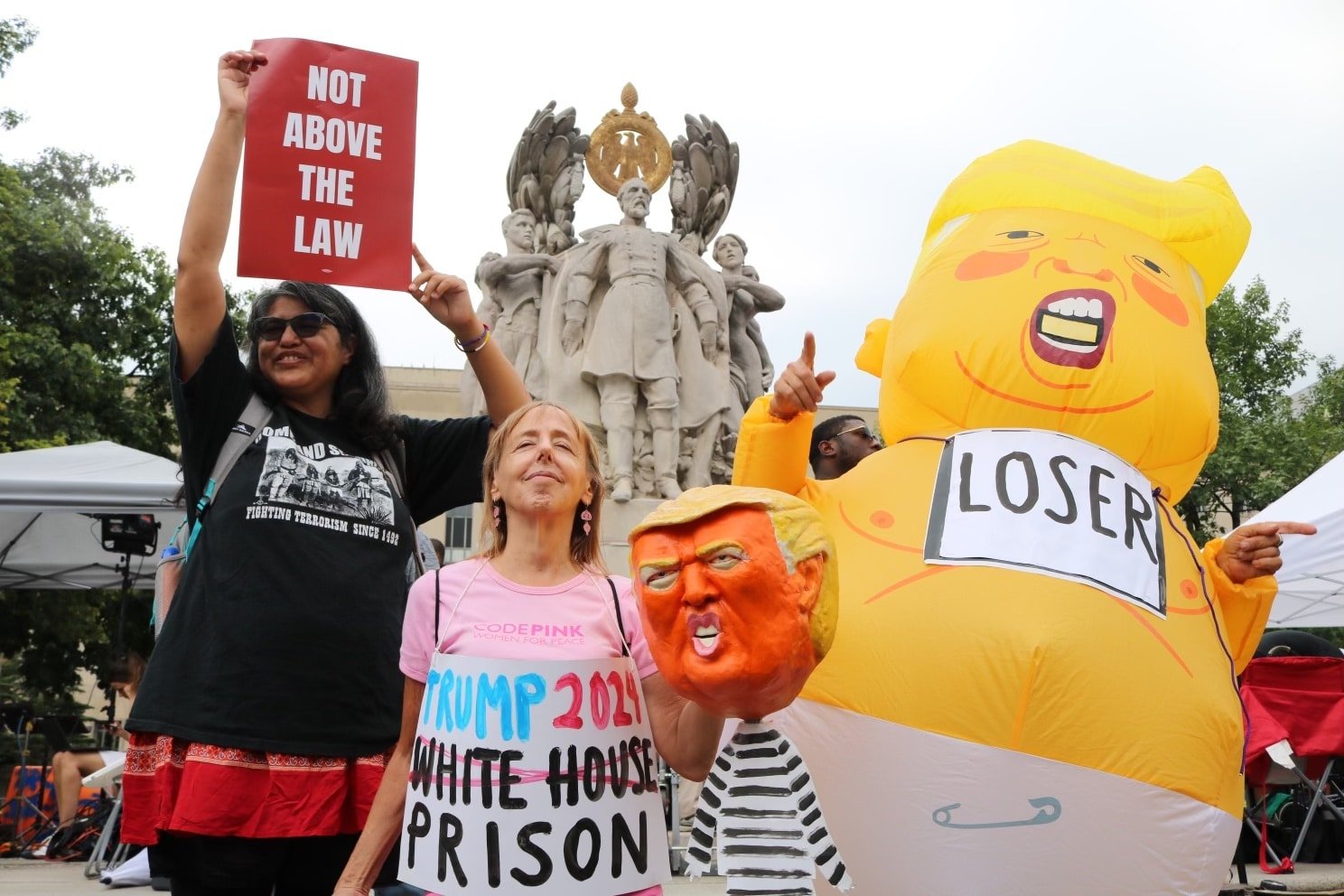WASHINGTON (CN) — Former President Donald Trump asked the Supreme Court on Monday to review the D.C. Circuit's denial of presidential immunity from criminal charges related to his effort to challenge the 2020 election results and interfere with the peaceful transfer of presidential power.
Trump urged the justices to pause the D.C. Circuit’s ruling denying his immunity claim, arguing the panel broke with precedent and historical norms.
“In 234 years of American history, no president was ever prosecuted for his official acts,” D. John Sauer, an attorney with James Otis Law Group, wrote in Trump’s application. “Nor should they be.”
Trump advances the same argument the appeal court panel shot down last week, arguing his prosecution will put a target on the backs of all presidents.
“The threat of future criminal prosecution by a politically opposed administration will overshadow every future president’s official acts — especially the most politically controversial decisions,” Sauer wrote.
Trump claims his former status as chief executive of the nation should protect him from election interference charges. His attempt to use the defense has delayed his D.C. trial where he faces four criminal counts over his actions between the 2020 election and the Jan. 6, 2021, attack on the U.S. Capitol.
Trump's immunity defense stems from a Supreme Court ruling involving Richard Nixon. In Nixon v. Fitzgerald, the justices said the president was immune from a civil suit from a government employee since the liability was linked to Nixon’s official acts.
Special counsel Jack Smith has charged Trump with conspiracy to defraud the United States, conspiracy to obstruct an official proceeding, obstruction of an official proceeding, and conspiracy against rights. As with the other 87 criminal counts he faces, Trump pleaded not guilty to the charges.
In Trump's indictment, prosecutors say he knew he lost a free and fair election but tried to remain in power anyway. They say Trump conspired to create doubt about the legitimacy of the election and tried to have himself declared the winner.
Trump stands accused of using false claims of election fraud to convince state legislators and election officials to change their electoral votes in his favor. Trump tried to get the fraudulent electors to give their false certificates to then-Vice President Mike Pence and tried to convince Pence to use the certification to change the election result.
Smith says that when Pence declined Trump’s request, the former president sent his supporters to the Capitol to obstruct the proceeding. Trump then used the chaos of Jan. 6 to double down on efforts to claim the election was stolen and convince lawmakers to delay the certification instead, according to Smith.
Trump stands accused of trying to overturn the election results, obstructing Congress’ certification of the electoral vote and conspiring to prevent the counting of votes.
The former president wants to use Fitzgerald to dismiss the charges in the D.C. case, but to do so presidential immunity would have to apply to criminal charges. The court would also have to find that Trump’s actions were part of his official duties.
U.S. District Judge Tanya Chutkan — who is presiding over Trump’s D.C. trial — rejected Trump’s motion to dismiss his charges. Chutkan reasoned that former presidents should not get a lifelong “get-out-of-jail-free” pass.
Smith asked the Supreme Court to review the case immediately after Chutkan’s ruling. Smith argued the case would make its way back up to the justices eventually so they should review the case to settle the issue. The justices refused to take up Smith’s appeal, allowing an appeals court to review the case first.









